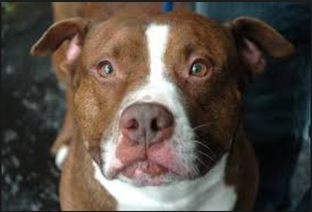 Someone on our page recently and once again pointed out that it's the public's fault that shelters have to kill animals. That's incorrect and here's why. The No Kill approach to sheltering has given up the unproductive practice of blaming the public and instead embraces the idea of looking to the vast majority of people who care about animals and want to do the right thing for them to help with a solution. Blaming the public alienates the public, the majority of whom want to do the right thing. Blaming the public alienates all of the bad people and also the good people, the people who will volunteer, who will foster, who will donate and who will contribute large amounts of resources to make the shelter a positive lifesaving place. And often shelters blame the public while at the same time refusing to make changes to out of date practices and policies that are actively causing the shelter to kill animals. So, some examples of regressive policies Long Beach Animal Care Services (LBACS) has and needs to change: **No staff or shelter volunteers are allowed to touch animals for 6 days (14 if they're microchipped), which means animals get no socialization during the difficult period of adjustment to the shelter and beyond. [This is a horribly regressive practice that is a very significant reason why LBACS kills nearly 1100 animals every year.] **LBACS labels animals as temperamentally unsuited to adoption (which they are not - the problem, if there is one, most likely has been caused by the shelter itself) and actively discourages people from adopting by giving only negative information about animals over the phone. **LBACS has a confusing adoption policy that they don't communicate adequately to the public and that their partner, SpcaLA actively undermines (as we have been told repeatedly by people who have tried to adopt.) **LBACS doesn't adequately exercise animals, and if those animals have a lot of energy, LBACS also won't take them to adoption events, which means those animals are then killed. So...blaming the public really isn't a productive strategy, though it is a very old one that the non-progressive shelter community works very hard to promote. By blaming the public, shelters are alienating the very people we need to bring into the shelters to adopt because most people want to do the right thing. Shelters need to be safe havens for animals, not places where they go to be killed while the shelter underperforms and points fingers at the public. As the NJ Animal Observer notes: "Unfortunately, many in the animal welfare world blame the public for shelter killing instead of the shelter leaders who are responsible for it. You will see things like “if only everyone spayed/neutered their pets” or “we just need a breeding ban” then we wouldn’t have any shelters killing savable animals. While these specific arguments can be addressed individually, the simple answer is communities with a far more irresponsible public have ended the killing. We can do it by simply following proven policies to get there. To get those policies in place, we need to inspire, persuade, and pressure those in charge to do so." No one says - abusive parents are irresponsible, so we can't have a strong safety net/Child Protective Services to protect children. Instead, as a society we put in place the programs and policies that will help children who are in danger. There is no question of blaming the public. You dig in and get the job done. That's all. Yes, there are irresponsible people in every community. The irresponsible public will always be with us. We will not see the end of irresponsible pet ownership in our lifetimes or in our children's lifetimes. Blaming the public does nothing. Putting in place responsible shelter programs and shifting to better methods and approaches for animal sheltering works - it's been proven to work over and over again across the country. That's how we transform our shelters from killing facilities to true safe havens for our shelter animals.
0 Comments
|
Archives
June 2022
SALB
An initiative to make Long Beach a No Kill community. Categories |
No Kill Long Beach
- Home
- ::NKLB in the News::
- 2020 Voter Information Guide
- How you can help
-
Get Informed
- Contact Us
- LBACS's Numbers
- Model No Kill Ordinance
- LB City Officials' Contact Info
- No Kill Long Beach Blog
- Justice for Thor
- LBACS Complaints
- A Shelter in Crisis
- 2018 Candidates' Responses
- LBACS Document Archive
- Why "Compassion Saves" is No Good
 RSS Feed
RSS Feed
